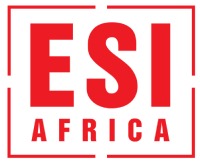South Africa: Renewable Energy Certificates made easy
Africa’s participation in the voluntary renewable energy certificates market is limited, but things are looking up in South Africa
Renewable Energy Certificates (RECs) will become just a little easier for businesses in South Africa to access come October.
That’s when property developer Growthpoint Properties starts using a blockchain-enabled REC exchange developed by green start-up Fuel Switch called e-co2.
The blockchain-based energy tech platform will make it easier for the property developer’s tenants to track their green electricity usage and respond to their ESG and net-zero commitments in a verifiable manner.
In this episode of ESI Africa Insights, we sit down with Barry MacColl, Senior Regional Manager at EPRI, to explore the real-world potential of AI and digitalisation for electricity utilities
The e-co2 platform certifies the specified electricity usage as green using IoT, blockchain and AI, by providing independent third-party verification. Once certified, the green energy benefit is recorded on a digital certificate.
Each digital certificate (the REC) confirms that one megawatt-hour of renewable energy has been generated and supplied to the national grid. The RECs are stored on the blockchain as a digital asset. Each is time-stamped and linked to a renewable energy source.
Role of renewable energy certificates in reporting on carbon emissions
As Fuel Switch CEO Jan-Paul Spangenberg pointed out, companies the world over are having to meet ESG and sustainability requirements and measure and report on their carbon emissions.
“It’s a global challenge that requires a global solution and requires partnerships,” said Spangenberg.
Scope 1 or direct emissions are something a company can control directly, such as how much diesel they use for a generator on-site, while Scope 2 is indirect emissions from the generation of purchased power.
Specifically in South Africa, with coal still powering nearly 80% of the country’s electricity, the upcoming Scope 2 tax on indirect emissions and the European Union’s Carbon Border Adjustment Mechanism (CBAM) threaten to raise costs for businesses and put up to R52.4 billion in exports at risk.
On top of corporates being under increasing pressure to meet net-zero and ESG commitments, sustainability reporting is increasingly carrying the same weight and scrutiny as financial reporting.
RECs can be redeemed for certified reduction of Scope 2 carbon emissions. Fuel Switch integrates directly with South Africa’s national REC registry, zaRECs, as well as the global I-REC standard governed by the I-TRACK Foundation. Its blockchain platform provides an unchangeable record for each REC from issuance to retirement, which ensures auditability aligned with global ESG standards.
RECs can be monetised by selling them on the voluntary REC market, where rights to green electricity are sought after.
A global problem with a local twist
Large multinational companies such as Google, Amazon, Microsoft, Apple, and Meta are driving a surging demand for RECS as they seek to reach 100% renewable electricity for their operations.
Until now, Africa’s participation in the voluntary RECs market has been limited. High costs, slow manual processes and opaque trading made it accessible to only the largest-scale projects.
A challenge for domestic households and small businesses is that accessing the international registry for RECs is not cost-effective. This collaboration makes it easier for smaller entities to get a foot in the door.
As Fuel Switch COO Gideon Maasz explains, a small tenant probably doesn’t worry about sustainability accounting that much, so would be interested in trading their renewable certificates for monetary value. A blue-chip tenant, on the other hand, would be very interested in what the RECs can do for their sustainability reporting and reduction of Scope 2 emissions.
Embedded generation in SA has grown thanks to C&I market
Growthpoint Properties Head of Energy Marius Meyer pointed out that the property developer has grown its installed capacity of renewable energy assets to just more than 80 projects of 61MW of (mostly solar) power over the years. This means they have the distributed equivalent of a utility-scale renewable power plant at their disposal.
“We have 34 of our projects registered for renewable energy certificates to date,” said Meyer.
In addition to rooftop solar on their properties, the property developer will deliver its first green electrons to 10 Sandton office buildings in October, with hydropower wheeled via the Eskom grid from the Boston Hydroelectric Plant. This hydropower plant was developed in the Lesotho Highlands Water Scheme in partnership with Serengeti Energy.
Also, for the e-co2, the company signed a 195GWh Power Purchase Agreement with Etana Energy in 2023, securing a mix of hydro, wind and solar power.
When the platform goes live, it will enable Growthpoint tenants of all sizes to access this new market.
The underlying blockchain-enabled platform is not non-exclusive and can be used by other property developers.
Cover photo: mikkiorso©123rf


